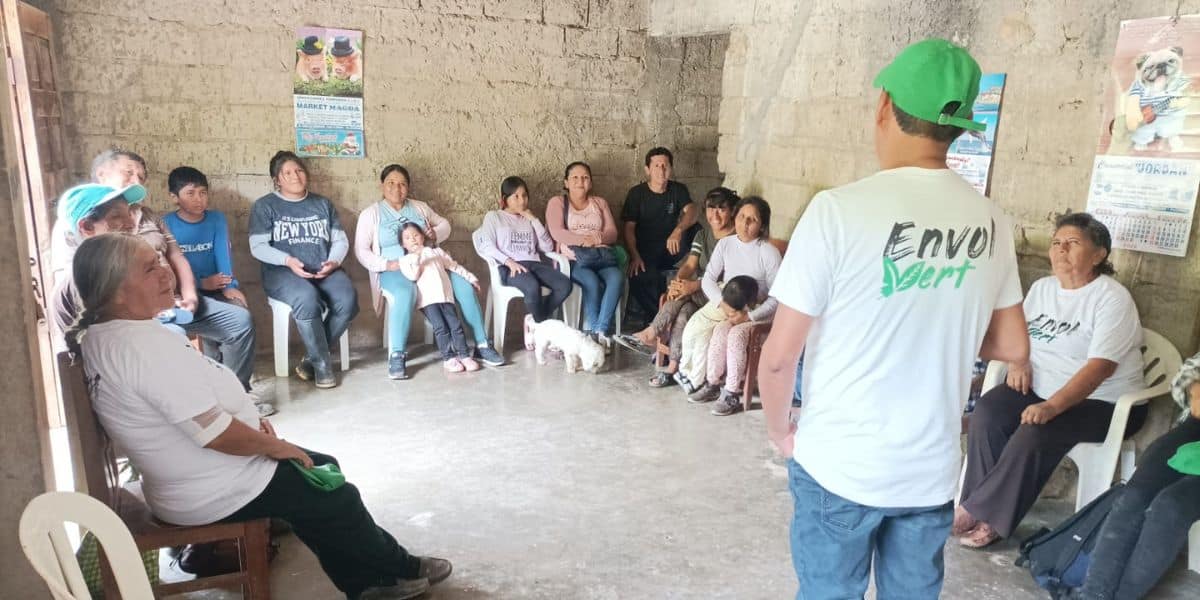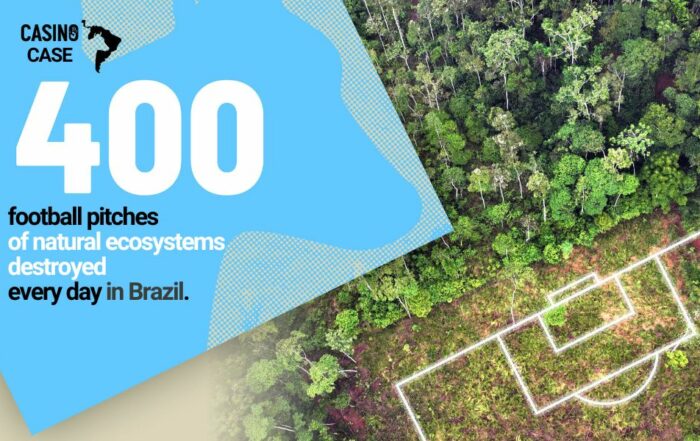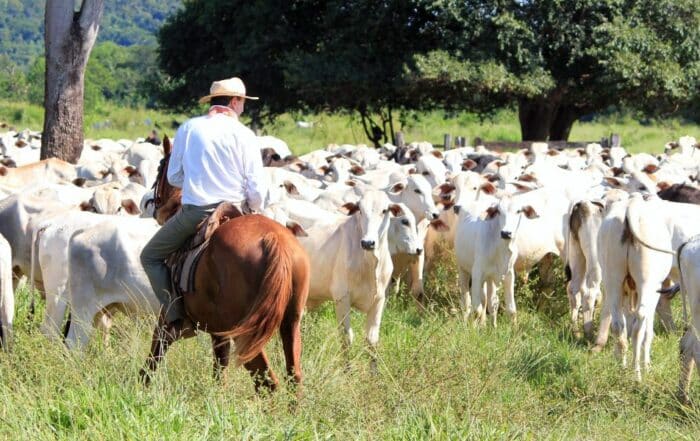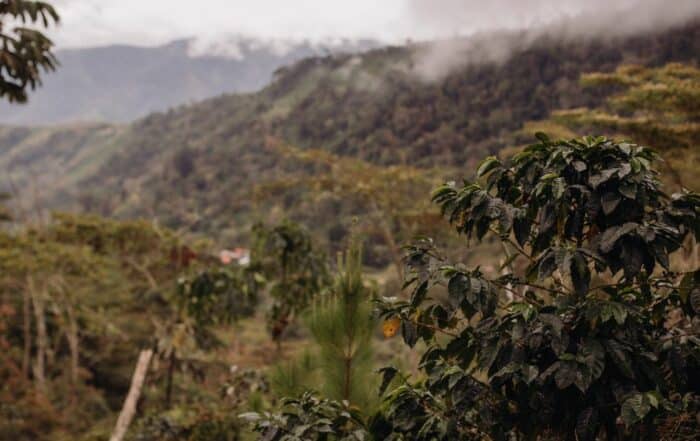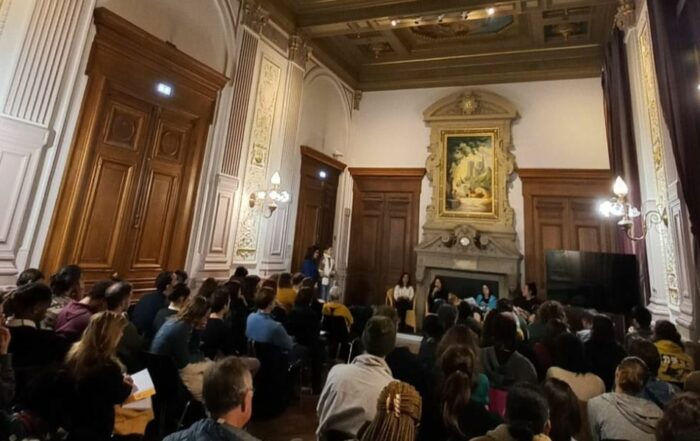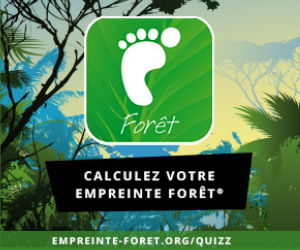Every year in January, Envol Vert organises the signing of community agreements. This is an important moment for coordinating the annual work with the participants in the conservation project and the development of economic alternatives to deforestation. During these meetings, all the details of the joint work are established in writing, guaranteeing transparency and clarity of the objectives and methodology employed within the project. It’s also the ideal place to address any doubts or questions that may arise, and to facilitate the creation of a space in which participants can interact and exchange ideas in order to prepare for the year’s teamwork in the best possible conditions.
Collaboration in action! Community agreements signed in 13 villages between Pichanaki and Tingo María
Community agreements have been signed in 13 villages between Pichanaki and Tingo María, thanks to the participation of women and men committed to protecting their forests. In Pichanaki, community agreements were signed in Rio Blanco, Union Pucusani, Colonia Huanca, Selva Alegre, Alto Yapaz, Pampa Azangaro Huerto, Santa Rosa Ocopa, Villa Sol and Union Anapiari, involving 88 people. In the Tingo María area, these agreements were signed by 4 working groups: Dulce Amanecer in Mariategui, Muyuna de Anda, Zona Verde de Anda and Pueblo Nuevo en Acción, bringing together 39 people. A total of 127 people signed the community agreements.
Monthly training calendar: key themes for sustainable agricultural development
In the various agreements, the training themes scheduled for each month have been agreed: Knowing my territory, Plot design, Ecosystem services of forests, Importance of biological corridors, Importance of seeds, Impact of EU Regulation 2023/1115 (RDUE) on raw materials and products associated with deforestation and forest degradation, Soil recovery and water conservation, and exchange of experiences .
In villages where economic alternatives are being developed with black walnut (Juglans neotropica), culinary workshops based on black walnut, training in good manufacturing practices and participation by producers in marketplaces to sell their products have been planned.
In villages that are working on economic alternatives based on native bee honey, training courses on formalising, harvesting and selling honey have been planned. As well as signing agreements, participants were trained in the use of WhatsApp to improve communication between working groups.
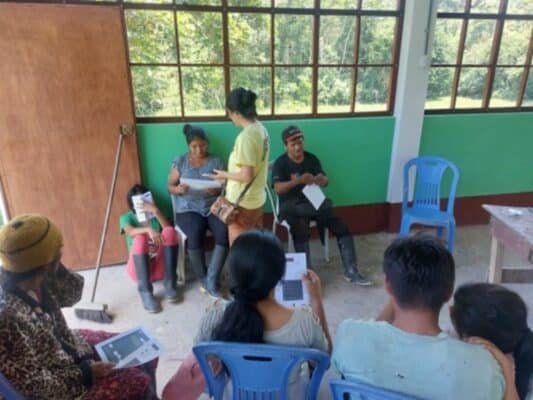
Training in the use of whatsapp and the signing of community agreements
at Dulce Amanecer in Mariategui,Tingo María, January 2024. ©Envol Vert
Formalising a collective commitment to achieving a common goal
The agreement sets out the responsibilities of the various members of the group, to ensure that the work is community-based and well-coordinated:
At the meeting, the members of the group take part in choosing the person responsible for each activity. If the people designated do not wish to take on this role, another person is chosen with goodwill. Copies of these agreements are given to all participants so that they are aware of their responsibilities and the activity plan for the year.
This is how the working groups are organised each year to ensure the good continuity of the projects.
Every year in January, Envol Vert organises the signing of community agreements. This is an important moment for coordinating the annual work with the participants in the conservation project and the development of economic alternatives to deforestation. During these meetings, all the details of the joint work are established in writing, guaranteeing transparency and clarity of the objectives and methodology employed within the project. It’s also the ideal place to address any doubts or questions that may arise, and to facilitate the creation of a space in which participants can interact and exchange ideas in order to prepare for the year’s teamwork in the best possible conditions.
Collaboration in action! Community agreements signed in 13 villages between Pichanaki and Tingo María
Community agreements have been signed in 13 villages between Pichanaki and Tingo María, thanks to the participation of women and men committed to protecting their forests. In Pichanaki, community agreements were signed in Rio Blanco, Union Pucusani, Colonia Huanca, Selva Alegre, Alto Yapaz, Pampa Azangaro Huerto, Santa Rosa Ocopa, Villa Sol and Union Anapiari, involving 88 people. In the Tingo María area, these agreements were signed by 4 working groups: Dulce Amanecer in Mariategui, Muyuna de Anda, Zona Verde de Anda and Pueblo Nuevo en Acción, bringing together 39 people. A total of 127 people signed the community agreements.
Monthly training calendar: key themes for sustainable agricultural development
In the various agreements, the training themes scheduled for each month have been agreed: Knowing my territory, Plot design, Ecosystem services of forests, Importance of biological corridors, Importance of seeds, Impact of EU Regulation 2023/1115 (RDUE) on raw materials and products associated with deforestation and forest degradation, Soil recovery and water conservation, and exchange of experiences .
In villages where economic alternatives are being developed with black walnut (Juglans neotropica), culinary workshops based on black walnut, training in good manufacturing practices and participation by producers in marketplaces to sell their products have been planned.
In villages that are working on economic alternatives based on native bee honey, training courses on formalising, harvesting and selling honey have been planned. As well as signing agreements, participants were trained in the use of WhatsApp to improve communication between working groups.

Training in the use of whatsapp and the signing of community agreements
at Dulce Amanecer in Mariategui,Tingo María, January 2024. ©Envol Vert
Formalising a collective commitment to achieving a common goal
The agreement sets out the responsibilities of the various members of the group, to ensure that the work is community-based and well-coordinated:
At the meeting, the members of the group take part in choosing the person responsible for each activity. If the people designated do not wish to take on this role, another person is chosen with goodwill. Copies of these agreements are given to all participants so that they are aware of their responsibilities and the activity plan for the year.
This is how the working groups are organised each year to ensure the good continuity of the projects.

